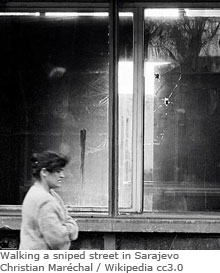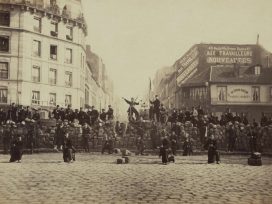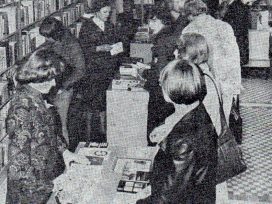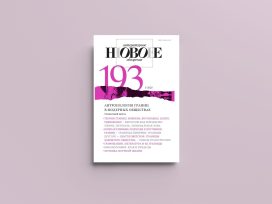There are two of them, yet they occupy only half the sofa. They elbow one another, push and shove. Then the second of them opens his mouth wide in imitation of the first, for me to take a look.
“That’s called your back tooth, number one”, I start to say, but I’m interrupted.
“What about my back teeth number ones, mum?”
Because he knows that you have more than one of them. He likes to count them, when playing gets boring. He pads around the room like a little animal in a cage, repeating over and over again, “Back tooth number one, upper right. Back tooth number one, upper left. Back tooth number one, lower right. Back tooth number one, lower left…”
 He doesn’t care for the word molar. He treats his parents to the proper name for his front teeth, though. Incisors. It’s an odd sort of word in any case. When it’s pronounced with a child’s lisp it sounds even odder. I don’t tell him what the teeth next to them are called. I think the word has a slightly ominous sound. Still, he knows a good deal. What he doesn’t know, what he can’t know, is that these sessions, which the other boy is joining in with for the first time, are part of a strategy for coping with my feelings of uncertainty and despair. While I’m worrying about my eight-year-old’s grown-up teeth, I ward off bad luck from the house. Bad luck comes in many shapes, it is unbounded, but these days it is sure to come: the sniper’s rifle and the shell. This is a city under siege, and I live in between two particular streets. Or, as one of the people who have come to send reports and pictures from the city said, I’m “flanked by sniper alleys”. I recognise the phrase “flanked by” because I have seen it captioning a picture of a European princess standing between two men. “Relatively calm day” is a cliché that goes with a city under siege. The day this scene is being played out is one such day. There is no shelling, and even the sniping is sporadic. Then this other boy appears outside, in the courtyard of our block of flats, come to keep a lonely classmate company. The lad has been doing well lately, with a string of high marks, and even though he has a friend over he still unexpectedly gives himself a supernumerary extra mark (and ever since his first adult molar has erupted he’s been given to asking to be told that it’s first-class). Next to a rotten tooth, a first-class tooth becomes even more outstanding. Eleven out of ten. I sense something of this in this scene, but I don’t yet suspect that there will be days when I notice women instinctively protect their chests at the mention of a malignant breast disease. The same women that somehow flaunt their chests when they visit someone who has fallen sick. They help them, they are even happy to help women who have lost their breasts to the disease, but they do it all the same. If I ever used to do it myself, I stopped when I noticed other people doing it. Did I?
He doesn’t care for the word molar. He treats his parents to the proper name for his front teeth, though. Incisors. It’s an odd sort of word in any case. When it’s pronounced with a child’s lisp it sounds even odder. I don’t tell him what the teeth next to them are called. I think the word has a slightly ominous sound. Still, he knows a good deal. What he doesn’t know, what he can’t know, is that these sessions, which the other boy is joining in with for the first time, are part of a strategy for coping with my feelings of uncertainty and despair. While I’m worrying about my eight-year-old’s grown-up teeth, I ward off bad luck from the house. Bad luck comes in many shapes, it is unbounded, but these days it is sure to come: the sniper’s rifle and the shell. This is a city under siege, and I live in between two particular streets. Or, as one of the people who have come to send reports and pictures from the city said, I’m “flanked by sniper alleys”. I recognise the phrase “flanked by” because I have seen it captioning a picture of a European princess standing between two men. “Relatively calm day” is a cliché that goes with a city under siege. The day this scene is being played out is one such day. There is no shelling, and even the sniping is sporadic. Then this other boy appears outside, in the courtyard of our block of flats, come to keep a lonely classmate company. The lad has been doing well lately, with a string of high marks, and even though he has a friend over he still unexpectedly gives himself a supernumerary extra mark (and ever since his first adult molar has erupted he’s been given to asking to be told that it’s first-class). Next to a rotten tooth, a first-class tooth becomes even more outstanding. Eleven out of ten. I sense something of this in this scene, but I don’t yet suspect that there will be days when I notice women instinctively protect their chests at the mention of a malignant breast disease. The same women that somehow flaunt their chests when they visit someone who has fallen sick. They help them, they are even happy to help women who have lost their breasts to the disease, but they do it all the same. If I ever used to do it myself, I stopped when I noticed other people doing it. Did I?
***
In the scene I am going to recount now, the bad luck no longer includes sniping and shelling. And the courtyard of our block is once again a refuge for cats, strays, rubbish, drunks… the underside of the city. Sometimes I see the phrase “flanked by” in the caption to a picture. I like to read the body language when I spot a picture like that; I like working out who she feels closer to, what she thinks about the two men. It’s usually women being “flanked” in those pictures. I never think about either of those “sniper alleys” while I’m trying to puzzle this out. One of them had its name changed since then, anyway.
The city is no longer under siege. The two boys who were sitting on the sofa back then are in their teens now. There’s only one of them here. If he were to sit on the sofa there wouldn’t be much room for the other. But he’s standing up, anyway. He’s standing almost as though he doesn’t want me to see his face. Turning his back, almost. I know that when he stands like this, pretending to be doing something, there is something he doesn’t want to talk about. That he’s keeping quiet about. Avoiding. He’s done something wrong, failed to keep a promise, told a lie…
But then he blurts out the name of the other boy from before, and stops. After a bit, as though he’s not sure, as though it’s nothing much really, he adds, “He’s in hospital”. My question “why” gets no answer; it becomes more urgent, more anxious, the way it does when people start to feel fear starting to creep up their spines. “What do you mean, you don’t know? For God’s sake, what do you mean, you don’t know?” All I get is a shrug of the shoulders and “I dunno”. He pretends to recollect. “A pain in the knee… Dunno. Honest I dunno.” An unnatural flush is flickering on his cheeks now. He’s turned his head away from me; affecting an interest in something, stashing something in his rucksack. In a hurry. I’m sat on the sofa, staring at my left hand, wide open. My chin in my right hand. Squeezing my jaw.
There are telephones, and the circle of mothers who used to attend the same parents’ meetings is still around, off and on. One mother always knows everything; how much should you be paying for those educational comics like Children’s News or My Magazine, and so on. This time I don’t even finish my question. She has the answer already. I don’t say, the way I used to, “Just a minute, Let me get something to write with.” It is a short, familiar word. No numbers.
I’ve hung up and I’m sitting on the floor, my back against a radiator. You get cold enough for two lifetimes in a siege. I’m shivering. An unfamiliar sound begins to force its way out of my chest, without me opening my mouth. My body is making a sound I have never heard before. Or rather, I am making it. I’m confused, because I’m alone in the apartment, but I can hear the sound of a dog. A puppy. We don’t have a dog in the apartment. And even if we did, it wouldn’t make a noise like this. It’s not the sound a pet would make, it’s the sound of a stray dog, ownerless and homeless. A dog whining under a clear, wintry, night sky, after snow has fallen, with a star glittering far-off by an icy moon. The radiator, whose ribs are pressing into my back, is cold. It’s not on. It doesn’t need to be on. It’s summer, and summer was not late in coming.
In the face of that response, that time was blessed, when ill fortune came by sniping and shelling. Lower left and lower right first back teeth too. No numbers here. A noun, short, easy to remember. It has two meanings – three, really. Crossword compilers call it a marine creature. Slow-moving. It goes sideways.
That was the scene that ruled over an occasion when there was a conversation about horoscopes at some gathering. Someone asked whether anyone knows all the signs in the right order. I made an attempt, and then whoever it was that asked counted them up and said, “What happened to number twelve?” But it wasn’t number twelve I had left out, it was number four. My thoughts had skipped over it. Between Gemini and Leo, the Lion and the Twins. Cancer. The Crab.
Many writers were born under Cancer. Singer. Krleza, Proust, Ujevic, Kafka, Petrarch…
* * *
There’s a poem which begins with an idyllic scene.
He with a book, keeping the light on late
She like a girl dreaming of childhood…
The scene that follows is hardly like that one, idyllic. But it does include a book. I am holding it. Although it does include poems, that particular poem is not in it. All around is that particular quietness, in which silence is a balm. Then the sound of a key threads its way into it, as though into some lovely box. Outside, turning in the lock. An anticipated sound, announcing an ordinary meal with the family, but this time I feel a pleasant anxiety too. Every woman knows, I suppose, how it is to feel anxiety before one particular man comes into the room. When you touch your hair, smooth the curve of your hips. And so on. Being “flanked” falls far short of that. But this is not that sort of feeling. I do try not to forget grieving Niobe’s error (or her transgression). But likely enough I won’t offend the gods or call down their wrath if I say that when my son enters the room he brings a breath of fresh air with him. As after gentle rain. The clue to the ultimate act of parenthood probably lies therein. Confined to a flat, sometimes even to a bed, fighting for breath, a parent expects to breathe in some air from the flesh of their flesh. The lung of their lungs. And I had always expected that the mother in this scene, sure to come, would be the one that bore me. And I…
I glance over the book while the key sounds. Two parents are looking at one another like two excited children. Now they are the children, given birth by the one who enters. He rewards us by his entrance. Begets us. We look at one another so, the two of us. When the bonds between us weaken, when I withdraw into myself, this scene brings us back together. The two of us waiting for our son to come in. “Right, let’s have dinner!” We are being ironic, we make a joke of it, but, still, that’s how it is.
The door opens, then closes, but this time there’s no ironic “I say, Parents!” Not even a half-ironic “Hey Momma, hey Poppa”. Not even, “Where’s Mum?”
Nor the sound of shoes being taken off, or hands being washed. Just a brutal rush. I almost shriek, “Where are you going to in those shoes? You little horror!” (I have forgotten the fresh air, I don’t care about fresh air, now that dirt from outside is being tracked though the flat. I have become a devotee serving of the sacred purity of the nest. Farewell to the ecstasy I confessed earlier: after all, I ought to be able to recall that sometimes when my son comes home the scent of nicotine comes home with him, in his jacket and in his hair. But his big male body is grinding its head deep into the floorboards. And a sound, as though someone is tearing apart his chest, the way one rips up a newspaper or a book. I used to hear that sound in the siege. We burned books then, to heat our flats. Ripping apart their stiff spines. I hurl the book down, almost shrieking, “Christ, what are you doing in my hand?” The poet will forever reproach me because he was the one I was reading when something terrible happened to that irreplaceable creature. Perhaps every writer should sometimes imagine such a scene as this when they are writing. Let them imagine sometimes that what they have written, what they intend to publish, will be in the hands of a mother who realises for the first time that she doesn’t have the strength to raise her son’s head from the floor, into which he is trying to grind it. But there are worse things. Far worse things. The other boy’s father was no reader of books. I can promise you that. I used to meet him sometimes, him and his wife. I can tell whether people read books or not. I can’t imagine that he was passing (parsing) the time in the waiting-room of the thoracic surgery ward with a book. And even if he was, what book could have survived the moment when they told him, “It’s over”. His son came round from the anaesthetic, opened his eyes for just a moment, smiled and… it was over.
I would find out over the phone (this time I don’t call, it spreads by some kind of parental bush telegraph) that he ran frantic from the hospital waiting-room when he realised. They were searching for a father in order to bury his son. He was buried.
Died on a Tuesday, buried on Friday.
Gone to a better place. There will always be someone to say that. Maybe the sentence would not feel like a foreign body lodged in my ear if it were any other time of year, or if May had failed its promise. But May it is. May. A May of Mays. It is the month When the planet that tells the hours has returned to the house of the Bull. It sounds better in the original. Taurus. The Bull.
It is May. The month of the May Tree, the Hawthorn, yet it reminds you of the Damask Rose. Shove your nose into a Damask Rose, shove it in, up to the hilt, as men would say. Even the poet, the architect of the Petrarchan style, to whom that phrase, “up to the hilt” is completely alien, gets jolted out of his own style when he mentions May.
Now from the burning horns doth power rise.
Horns, flame, power, rising. Weigh up these words. Their meanings, the one and the other.
You hesitate before saying, this is Petrarch. It doesn’t sound like Petrarch, yet it is. Not even that notorious Capricorn, the godfather of the still more notorious “up to the hilt”, would hesitate to make use of such a Petrarch, such a Petrarchan phrase.
Strange are the journeyings of books. Strange too are the how and when of when they find you. A month had passed, maybe not quite a month, yet there were still reasons I kept remembering that scene with the children’s teeth, and the sofa, with the two of them only occupying half of it, when I picked up a book which cited a Vedic tradition. It says that the two teeth whose name I kept from the boy are “two tigers”, eager to devour father and mother. Eye-teeth.
I’m not certain whether what I want to say is a part of what I am writing about. And yet… The other boy was born in May. The sofa? Given away to someone, somewhere. We never bought another.
* * *
It is April, not May. The scene I am seeing in my imagination has been called forth by a number on the screen that I am watching. A five-figure number. What I see in my imagination turns the last figure a one into a two. 11,541 becomes 11,542.
11,541 is the official number of the citizens of the city under siege who were killed. Those who did not survive the siege. Today it shimmers on the screen, on almost every channel. 11,541. When they ask you, that’s what you can tell them. Eleven thousand five hundred and forty-one. But while I look at the number, I keep thinking of the day when one boy came through the courtyard to see another, and when I almost said, “But your tooth is all…”
There was shoving, elbowing and whispering. I needed to keep them entertained. I was racking my brains : what could I teach them? What ought they to know at their age?
Where did their lessons leave off? The schools were closed. Pythagoras’ theorem? Too soon for that. It’s the “what every child knows” that misled me. The square of the hypotenuse, as any child knows, is equal to the sum of the squares of the other two sides. Sides, square, hypotenuse. Horror after horror. I dropped it. But not Pythagoras. Looking at the two of them on the sofa, while two of them could still fit on it, I recalled that it was the same philosopher from Samos who said, There is nought in you, O Man, but spirit.
In any event, I have not forgotten that first molar. I thought: One of his molars is decayed, but as far as I could see, another one is erupting. Another one is growing. Another one, a very important permanent tooth, is growing. I shall give him that liquid to take to his parents so they can rub it on that tooth a few times. To protect it. So it doesn’t go the way of the first. Perhaps I felt that particular tenderness you feel for yourself when you are being a good person, when you are looking after someone else. It is a relatively quiet day and you are being a good person. And I went towards the bathroom, towards the shelf with the bottles, and then something else distracted me. I cannot remember what it was, no matter how I try. Later? I put it out of my mind? I can’t swear that it was that way.
I slipped an apple into his hand. And a picture book, read a hundred times. But not that little bottle with the drops in. There were two on the shelf. I can argue with myself now. I am sure of one thing. He ate… they ate that day, the two boys, together. Maybe I let them have my own meal that day. There wasn’t enough food. But I disagree with myself right away: that sounds horrible. And it sounds as if you’re boasting about the colour of your eyes, the shape of your foot… as though you had a hand in them. You just got them like that. You don’t merit anything because of them. Even in a siege you don’t think about hunger. You weren’t really that hungry in the siege either. That’s simply the way it is. You’re never hungry, under siege or no. I’m arguing with myself. Hushing the part of me which wants to make excuses.
There were other opportunities, but I never gave the bottle with a couple of drops of liquid to the boy who came through the courtyard, to protect his teeth. Make-believe protection, I knew that then, and I know it now, but I was in thrall to credulity then, to magic and spells. If I cast spells on the adult teeth of one boy, I should have done so for the other. He died in thoracic surgery, after chemotherapy and radiotherapy and who knows how many operations. It went on for a few years. There were ups and downs. That has nothing to do with this scene. I still keep seeing that tooth with my inner eye. I watch him going down the stairs, following him with my eyes, and when he reaches the first landing I almost say, “Wait, I forgot to give you something…” He turned around, smiled, waiting, holding a runtish little apple (they were all runtish, I know) in one hand, the other one clasping the bannister. And I wave him away. It’ll be fine, another time.
And so this morning, while they count off the numbers of those who were killed by the sniping and the shelling, I remember the day I trod on my heart. I used to quote it in the original, when I still could: “We trod on our hearts and slipped on them when the sound of the unutterable echoed in the air, and now we would spurn them with a single kick, as though we had accidentally slipped on a watermelon rind”.
It is April. The sixth of April. They day they speak of the start of the siege. There was a day when the siege ended. It was recorded. I don’t remember it. I often get a feeling of unease when I, someone who lived in a city under siege, cannot recall when the siege ended. Ended. Finished. Came to an end, was over. Stopped. Was vanquished. Destroyed. Vanished. Was broken. How are you supposed to say it? I don’t know.
One of the few questions I can answer right away is, “Who was the first to be killed?” Her name, in a far-off tongue, means: “The fortunate one.” Lucky. She was hit by a sniper’s bullet. Dead on the spot. Twenty-four years old. A sniper rifle; it’s a weapon where the person aiming can see every detail of what he’s aiming at. Even the eyes?
And it was on this day, a Good Friday, that Petrarch first saw his Laura. Her begli occhi. Her beautiful eyes.
Benedetto sia ‘l giorno, e ‘l mese…
“Blessed be the day, and month…” – the poet sings the day and hour he was pierced by the shaft of Love.
Petrarch. I pick up a pen, and make a calculation. The poet, pierced by the shaft of Love, lived on after that sixth day of April, lived for another 47 years.







